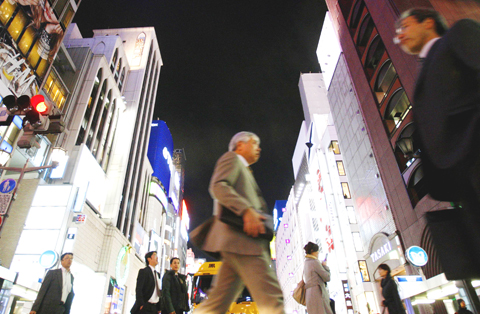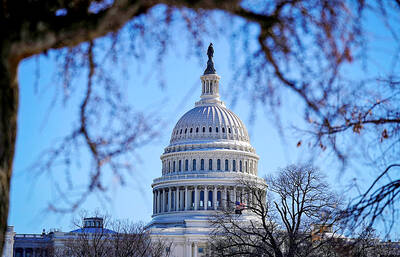Beyond fiscal stimulus and government bailouts, the economic recovery that appears under way may be based on little more than self-fulfilling prophecy.
Consider this possibility: After all these months, people start to think it’s time for the recession to end. The very thought begins to renew confidence, and some people start spending again — in turn, generating visible signs of recovery. This may seem absurd, and is rarely mentioned as an explanation for mass behavior late in a recession, but economic theorists have long been fascinated by such a possibility.
The notion isn’t as farfetched as it may appear. As we all know, recessions generally last no more than a couple of years. The current recession began in December 2007, according to the National Bureau of Economic Research, so it is almost two years old. According to the standard schedule, we’re due for recovery. Given this knowledge, the mere passage of time may spur our confidence, though no formal statistical analysis can prove it.

PHOTO: REUTERS
Certainly, people did not always believe that there is a regular “business cycle” that starts and stops in a definite pattern. The idea began to spread in the popular consciousness in the 1920s and reached full bloom in the 1930s — with one major complication, the Great Depression, which received its name in midcourse, from a 1934 book with that title by Lionel Robbins.
“There have been many depressions in modern economic history, but it is safe to say that there has never been anything to compare with this,” Robbins wrote.
In his narrative, the Great Depression was an extreme event, compared with ordinary “depressions.”
“Recession,” a kinder, gentler term, began to be used around the time of the 1937 to 1938 contraction to refer to a normal downturn in the business cycle. In January 1938, the Chicago Daily Tribune offered a wry definition of a recession, calling it “a new word for depression, coined by those who don’t like to admit that we’re still in one.”
People joked so much about the euphemism that in 1938 then-US president Franklin D. Roosevelt said: “It makes no difference to me whether you call it a recession or a depression.”
The proliferation of the idea of a more-or-less predictable business cycle intersected with a rapidly growing public interest in psychology. Choice of words can matter greatly for the psychologically aware, and the new word “recession” had a much softer sound than its predecessor. Recessions, as the term came to be used, implied timetables that mark their expected end. Uttering the word does not risk damaging confidence, at least not fundamentally. A diagnosis of a recession can be shrugged off as something from which you will recover, as though your doctor had just diagnosed an illness as a common cold. A depression came to be another matter entirely.
Back in 1931, for example, the New York Times attributed the emerging economic cataclysm to a “mood of pessimism which had been carried to grotesque extremes.” In 1932, it compared reckless talk about “depression” to shouting “fire” in a crowded theater.
Roosevelt is widely remembered for saying, in 1933, that “the only thing we have to fear is fear itself.” But he was only repeating an oft-told message.
It wasn’t until 1948 that Columbia University sociologist Robert Merton wrote an article in the Antioch Review titled “The Self-Fulfilling Prophecy,” using the Great Depression as his first example. He is often credited with having invented the “self-fulfilling prophecy” phrase, but by the 1930s the idea was already as commonplace as breakfast toast made with modern electric toasters. (Interestingly, the same Robert Merton documented the tendency for important ideas to be falsely attributed to celebrities.)
In fact, in 1937, Think and Grow Rich, a book by Napoleon Hill, urged readers to adopt a positive mental attitude and to channel the power of the subconscious mind so that real wealth would follow. It became a runaway best seller. Faddish interest had already emerged not only in Freud’s theory of the unconscious mind, but also in the theories of the psychologist Emile Coue, who urged people to recite that “every day in every way I’m getting better and better.” He said this “autosuggestion” would bolster the unconscious self.
In important ways, we are still using that 1930s pattern of thinking. We are instinctively fearful of reckless talk about depressions, and we try to support one another’s confidence. We like the idea that modern scientific economics seems to show that all recessions end in due course.
For now, our common efforts at building confidence appear to be working somewhat. But the economy has still not recovered, by any means.
Coueism has been discredited generally, as has much of the old business-cycle theory, but they live on in our popular notions about recessions. We may hope that our resorting to euphemism and belief in timetables of business-cycle recoveries work better to restore confidence than they did in the 1930s.
The problem might be put this way: There is still a nagging doubt afloat that the current event is really just another example in that long sequence of recessions. In which mental category does the current contraction belong: recession or depression? We may still be at a tipping point. To the extent that the theory of the self-fulfilling prophecy is correct, there is a case for continued vigilance, to ensure that adverse events don’t encourage widespread talk of the second category.
Also See: US economy much weaker than government numbers suggest

RESTRAINTS: Should China’s actions pose any threat to Taiwan’s security, economic or social systems, China would be excluded from major financial institutions, the bill says The US House of Representatives on Monday passed the PROTECT Taiwan Act, which states that Washington would exclude China from participating in major global financial organizations if its actions directly threaten Taiwan’s security. The bill, proposed by Republican Representative Frank Lucas, passed with 395 votes in favor and two against. It stipulates that if China’s actions pose any threat to Taiwan’s security, economic or social systems, the US would, “to the maximum extent practicable,” exclude Beijing from international financial institutions, including the G20, the Bank for International Settlements and the Financial Stability Board. The bill makes it clear that China must be prepared

Taiwanese trade negotiators told Washington that Taipei would not relocate 40 percent of its semiconductor production to the US, and that its most advanced technologies would remain in the nation, Vice Premier Cheng Li-chiun (鄭麗君) said on Sunday. “I told the US side very clearly — that’s impossible,” Cheng, who led the negotiation team, said in an interview that aired on Sunday night on Chinese Television System. Cheng was referring to remarks last month by US Secretary of Commerce Howard Lutnick, in which he said his goal was to bring 40 percent of Taiwan’s chip supply chain to the US Taiwan’s almost

PEACE AT LAST? UN experts had warned of threats and attacks ahead of the voting, but after a turbulent period, Bangladesh has seemingly reacted to the result with calm The Bangladesh Nationalist Party (BNP) yesterday celebrated a landslide victory in the first elections held since a deadly 2024 uprising, with party leader Tarique Rahman to become prime minister. Bangladesh Election Commission figures showed that the BNP alliance had won 212 seats, compared with 77 for the Islamist-led Jamaat-e-Islami alliance. The US embassy congratulated Rahman and the BNP for a “historic victory,” while India praised Rahman’s “decisive win” in a significant step after recent rocky relations with Bangladesh. China and Pakistan, which grew closer to Bangladesh since the uprising and the souring of ties with India, where ousted Bangladeshi prime minister Sheikh Hasina

The Taiwan Space Agency (TASA) yesterday released the first images from its Formosat-8A satellite, featuring high-resolution views of Hsinchu Science Park (新竹科學園區), Tainan’s Anping District (安平), Kaohsiung’s Singda Harbor (興達港), Japan’s National Stadium in Tokyo and Barcelona airport. Formosat-8A, named the “Chi Po-lin Satellite” after the late Taiwanese documentary filmmaker Chi Po-lin (齊柏林), was launched on Nov. 29 last year. It is designed to capture images at a 1m resolution, which can be sharpened to 0.7m after processing, surpassing the capabilities of its predecessor, Formosat-5, the agency said. It is the first of TASA’s eight-satellite Formosat-8 constellation to be sent into orbit and